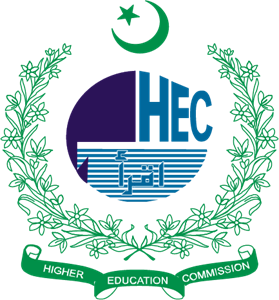
Islamabad: HEC’s Higher Education Development in Pakistan (HEDP) project held its eighth Steering Committee (SC) meeting at the Higher Education Commission (HEC) Secretariat, Islamabad. SC is the highest forum of the project comprising senior officials from federal ministries, provincial higher education departments, vice chancellors, and private sector representatives.
HEDP is a five-year US$ 400 Million national flagship project (2019/20 – 2023/24) of HEC to implement key higher education priorities. The committee members reviewed the progress made so far on the project. Dr. Zia Ul-Qayyum, Executive Director, HEC chaired the meeting saying that HEDP is a key investment for higher education as it is supporting HEC in its various areas of research, quality assurance, IT initiatives and capacity building. “I am glad to share that HEDP has a good standing of achieving 81% of its targets, and this has also been validated by the recent World Bank mission that has improved the project rating.”
Project Coordinator HEDP Dr. Mehmood ul Hassan Butt gave an overview of the HEDP project, its history, progress, plans, and the recently held World Bank Mission that has further improved the project rating to satisfactory in seven components. He along with his team briefed the committee on the key project initiatives, including the physical and financial progress. In addition, it was apprised that the project is moving towards its last year and the team is working closely with HEC officials as eventually these will be taken over by the HEC staff to sustain these initiatives. Technical heads of the project components updated members on the progress of each of their components of the project. Component 1 has recently completed award of 10 Rapid Technology Transfer Grants (RTTG) – focused on addressing Pakistan’s current financial distress by encouraging industry-academia collaborations to enable import substitutions. It is also working to gather the outputs and impacts of the grants awarded in last years in terms of research publications, recognitions, awards, and innovative ideas/ products developed.
Component 2 team has recently completed the establishment of 41 Quality Enhancement Cells in Affiliated Colleges (QECACs) as well as training faculty of affiliated colleges on General Pedagogy across Pakistan. It is also working closely with the HEC QAA division to facilitate implementation of new HEC QA policy. The IT component head briefed members on the ambitious plans and the activities including Data Centre, the Student Life Cycle system, Enterprise Resource Management and allied computing and storage facilities for Higher Educational Institutions (HEIs).
A few of these have already been signed off while others are under final stages of procurement. The project has also supported NAHE in conducting faculty training need assessment studies in Punjab and Sindh in addition to other professional capacity building initiatives.

